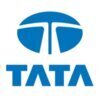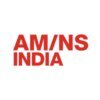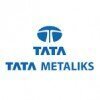Filter interviews by
Kalyani Forge Trainee Interview Questions and Answers
Kalyani Forge Trainee Interview Experiences
1 interview found
I applied via Walk-in and was interviewed in Jun 2021. There was 1 interview round.
Interview Questionnaire
2 Questions
- Q1. Only ask basic question about cnc machine
- Q2. Some measurement instrument like verniercaliper micromiter
Interview Preparation Tips
Interview questions from similar companies

I applied via Naukri.com and was interviewed before May 2021. There was 1 interview round.
(1 Question)
- Q1. What is proxy? what is smps? what is encoder? Star delta working
- Ans.
Proxy is an intermediary server that acts as a gateway between clients and servers. SMPS is a power supply unit that converts AC to DC. Encoder is a device that converts motion into digital signals. Star delta is a method of starting three-phase motors.
Proxy helps in hiding the identity of clients and servers.
SMPS is commonly used in computers and other electronic devices.
Encoders are used in robotics, automation, and ...
Interview Preparation Tips

I applied via Naukri.com and was interviewed before Jan 2021. There were 3 interview rounds.
Interview Questionnaire
5 Questions
- Q1. Chemical analysis of chromite ore by ICP OES
- Ans.
ICP OES is a technique used for chemical analysis of chromite ore.
ICP OES stands for Inductively Coupled Plasma Optical Emission Spectroscopy.
It is a powerful analytical technique used for the determination of trace elements in a variety of matrices.
ICP OES can be used to determine the concentration of elements such as Cr, Fe, Mg, Al, and Si in chromite ore.
The technique involves the excitation of atoms in a sample usi...
- Q2. Principle of ICP oes
- Ans.
ICP-OES is a technique used for elemental analysis in which a sample is vaporized and excited by a plasma to emit light.
ICP-OES stands for Inductively Coupled Plasma Optical Emission Spectroscopy.
It is used to determine the concentration of elements in a sample.
The sample is vaporized and excited by a plasma to emit light, which is then analyzed to determine the elemental composition.
ICP-OES is commonly used in environ...
- Q3. Weight chemical analysis of chromite ore
- Ans.
Weight chemical analysis of chromite ore involves determining the percentage of various elements present in the ore.
The ore is first crushed and ground into a fine powder.
The powder is then mixed with various chemicals to dissolve the elements of interest.
The resulting solution is then analyzed using various techniques such as atomic absorption spectroscopy or inductively coupled plasma mass spectrometry.
The percentage...
- Q4. Knowledge of NABL
- Q5. Knowledge of ISO 17025,ISO 9001,ISO 450001, IMS
Interview Preparation Tips

I applied via Walk-in and was interviewed in Jun 2021. There was 1 interview round.
Interview Questionnaire
1 Question
- Q1. Company related questions
Interview Preparation Tips

I appeared for an interview before Jan 2021.




(2 Questions)
- Q1. What are your salary expectations?
- Q2. Any questions hr team
- Ans. My contact no not any time network area ple msg me
Diploma
(1 Question)
- Q1. What are your salary expectations?




Interview Preparation Tips

Associate Interview Questions & Answers
Tata Steel Downstream Productsposted on 26 Nov 2023
I applied via Campus Placement and was interviewed before Nov 2022. There were 4 interview rounds.

Quantitative aptitude, reasoning
(1 Question)
- Q1. As per ur technical qualifications questions
Verbal (English) , technical interview and programming questions
Interview Preparation Tips

I applied via Referral
Discussion with, MD, COO, Legal Advisor
(2 Questions)
- Q1. In one round discussion I was selected
- Q2. They wanted to know my experience in Govt. I possessed 38 years is service all over the in various departments
Interview Preparation Tips

I applied via Recruitment Consultant and was interviewed in Apr 2020. There were 3 interview rounds.
Interview Questionnaire
4 Questions
- Q1. About Heat treatment
- Q2. About previous experience
- Q3. About metallurgical testing
- Q4. Quality documentation and quality tools
Interview Preparation Tips

I applied via Naukri.com and was interviewed in Oct 2020. There were 3 interview rounds.
Interview Questionnaire
1 Question
- Q1. Question Related to my job description about utilities equipment and maintenance
Interview Preparation Tips

Senior Engineer Interview Questions & Answers
SHYAM METALICS AND ENERGYposted on 21 Feb 2025
I appeared for an interview before Feb 2024.
What you prepared before starting the project.
(1 Question)
- Q1. Salary discussion.
Kalyani Forge Interview FAQs
Tell us how to improve this page.
Kalyani Forge Interviews By Designations
- Kalyani Forge Senior Engineer- Maintenance Interview Questions
- Kalyani Forge Financial Accountant Interview Questions
- Kalyani Forge Production Manager Interview Questions
- Kalyani Forge Finance Manager Interview Questions
- Kalyani Forge Quality Engineer Interview Questions
- Kalyani Forge Production Engineer Interview Questions
- Kalyani Forge Design Engineer Interview Questions
- Kalyani Forge QA Engineer Interview Questions
- Show more
Interview Questions for Popular Designations
- Graduate Engineer Trainee (Get) Interview Questions
- Management Trainee Interview Questions
- Engineer Trainee Interview Questions
- Graduate Trainee Interview Questions
- Software Engineer Trainee Interview Questions
- Diploma Trainee Engineer Interview Questions
- Internship Trainee Interview Questions
- Programmer Analyst Trainee Interview Questions
- Show more
Interview Questions from Similar Companies
Kalyani Forge Trainee Reviews and Ratings
based on 4 reviews
Rating in categories
|
Production Engineer
28
salaries
| ₹1.5 L/yr - ₹4.1 L/yr |
|
Graduate Engineer Trainee (Get)
23
salaries
| ₹1.6 L/yr - ₹2.5 L/yr |
|
Quality Engineer
21
salaries
| ₹1.4 L/yr - ₹3 L/yr |
|
Production Supervisor
19
salaries
| ₹2 L/yr - ₹5.8 L/yr |
|
Manager
17
salaries
| ₹4.2 L/yr - ₹10 L/yr |

Tata Steel

ArcelorMittal Nippon Steel

Jindal Stainless

Jindal Saw
- Home >
- Interviews >
- Kalyani Forge Interview Questions >
- Kalyani Forge Trainee Interview Questions
















